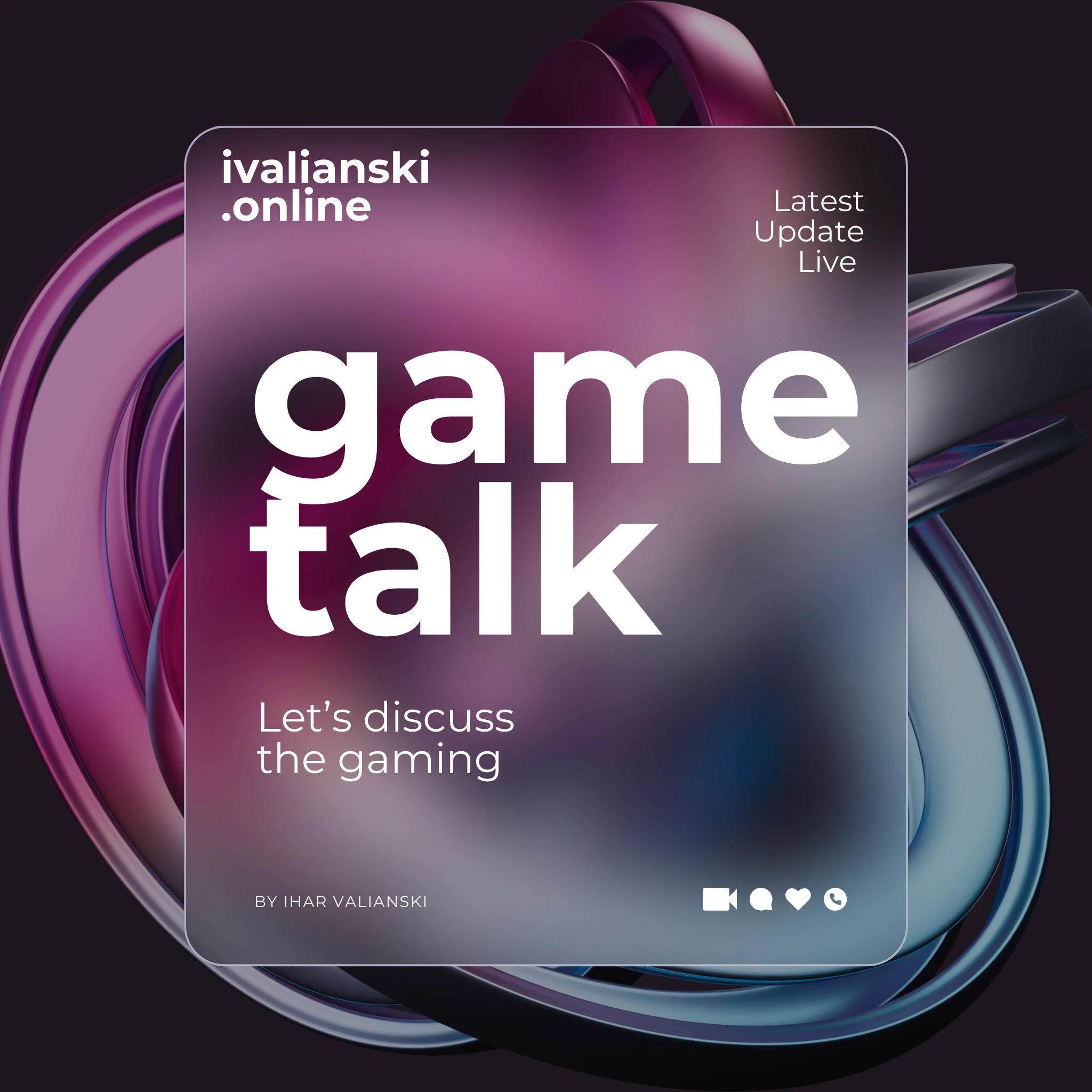There’s a unique magic to a great Role-Playing Game. It’s not just about the mechanics, the stats, or the loot (though those are certainly important). It’s about the profound sense of immersion, the weight of choice, and the unforgettable relationships forged in digital worlds. An RPG is a passport to another life, another identity, and another set of struggles far grander—or sometimes more intimately human—than our own.
Over the years, I’ve journeyed through countless fantasy realms, sci-fi galaxies, and dystopian futures. But five series have risen above the rest, leaving an indelible mark on my gaming soul. They are the standards against which I measure all others. They are the worlds I return to, time and time again. So, grab a health potion, power up your omni-tool, and join me as I break down my personal Top 5 RPGs of all time.
5. Cyberpunk 2077: The Redemption of a Dystopian Dream
Let’s start with the most recent entry on this list, and perhaps the most controversial. Cyberpunk 2077’s launch in December 2020 is a chapter in gaming history most would rather forget. Plagued by bugs, performance issues on last-gen consoles, and missing features, it was a cautionary tale of hype overshadowing reality. I, like many, set it aside with a heavy heart. But to judge this game solely on its disastrous launch is to miss one of the most breathtaking, deep, and emotionally resonant RPG experiences of the last decade.
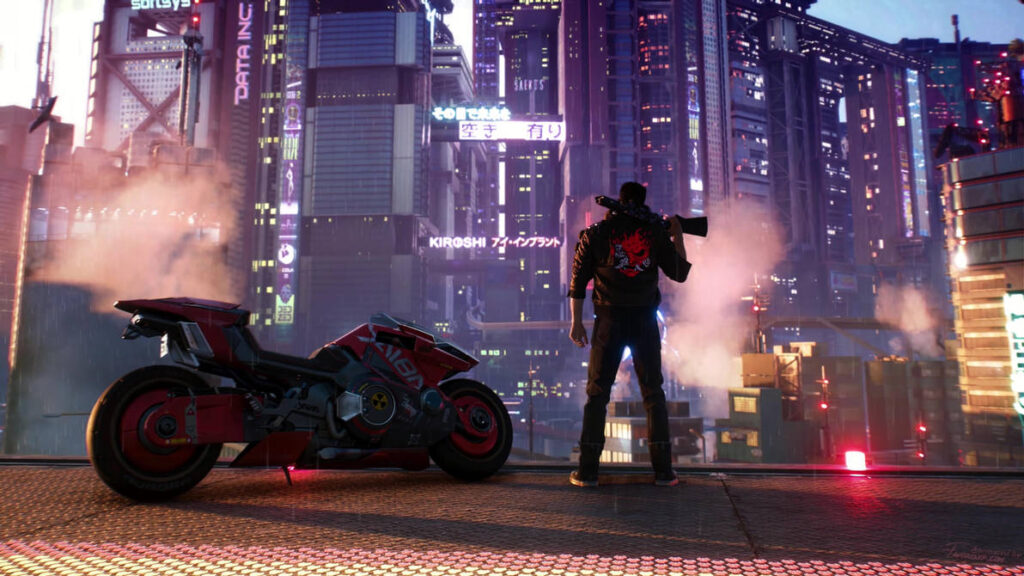
The World is the Main Character: Night City is the undeniable star of the show. It’s not just a backdrop; it’s a pulsating, neon-drenched organism of sin, ambition, and shattered dreams. CD Projekt Red’s environmental storytelling is second to none. Every alleyway, mega-building, and neon-lit market tells a story. The sheer density of the world is staggering. You can simply walk (or drive) through the districts—from the corporate opulence of City Center to the gang-ruled chaos of Pacifica—and feel the oppressive, yet seductive, weight of the world. It’s a masterclass in building a setting that feels genuinely alive and inherently hostile.
A Story of Identity and Soul: At its core, Cyberpunk 2077 is a tragic story about the theft of self. You play as V, a mercenary whose quest for a one-of-a-kind bio-chip heist goes horribly wrong, resulting in the digital ghost of legendary rockerboy Johnny Silverhand (a perfectly cast Keanu Reeves) being permanently etched into your mind. The central plot is a race against time as V and Johnny battle for control of a single body. This setup creates a fascinating dynamic. Johnny is an abrasive, anarchic, and often infuriating presence, but over dozens of hours, a grudging respect and even friendship can form. The writing is sharp, witty, and often deeply philosophical, asking what it truly means to be “you” when your mind is no longer your own.
Phantom Liberty and the 2.0 Revolution: The conversation around Cyberpunk is incomplete without its monumental 2.0 update and the stellar Phantom Liberty expansion. 2.0 overhauled the entire game, revamping the perk system, cyberware, police AI, and vehicle combat, transforming the gameplay from a decent shooter with RPG elements into a deep, crunchy, and incredibly satisfying action-RPG.
Phantom Liberty, however, is a narrative tour de force. A spy-thriller set in the new district of Dogtown, it features Idris Elba as Solomon Reed, an FIA agent with his own shadowy agenda. The expansion is a tense, morally grey story of betrayal and impossible choices, with an ending that is arguably more devastating and poignant than any in the base game. It solidified Cyberpunk 2077’s legacy not as a failure, but as a phoenix that rose from its own ashes to claim its place among the greats.
4. The Witcher Series: A Slavic Masterpiece of Moral Ambiguity
This one is deeply personal. As someone who is half-Polish, The Witcher series is a source of immense pride. CD Projekt Red didn’t just create a great game; they brought the rich, gritty, and folklore-steeped world of Andrzej Sapkowski’s novels to a global audience, infused with a distinctly Slavic soul. It’s a world where fairy tales are dark and dangerous, where good and evil are rarely clear-cut, and the “lesser evil” is almost always a choice between two poisons.
Geralt of Rivia: The Perfect Protagonist: Geralt is a masterclass in character writing. A mutated monster hunter for hire, he is often perceived as emotionless, yet the games brilliantly explore the man beneath the legend. Through his dry wit, his fierce loyalty to those he loves (Ciri and Yennefer/Triss), and his weary cynicism towards the world’s pettiness, we see a deeply human character. He’s a professional who tries to remain neutral in a world tearing itself apart with racism, political intrigue, and war, but constantly finds himself dragged into the fray. We don’t project ourselves onto Geralt; we accompany him, and it’s a privilege to do so.
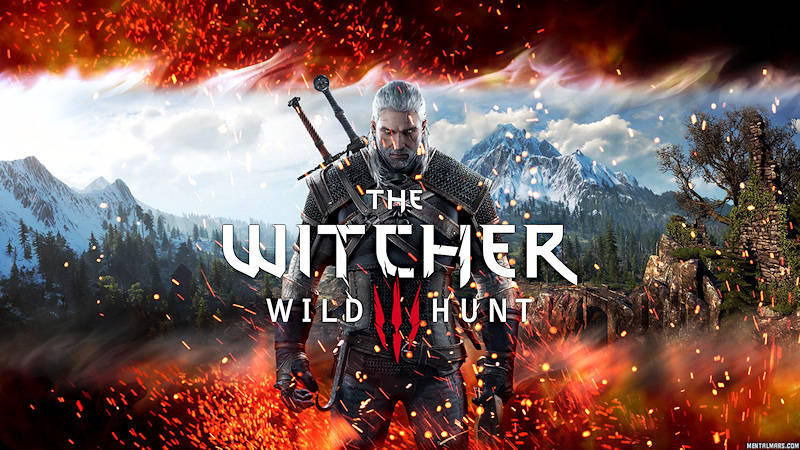
The Weight of Choice: The Witcher 3: Wild Hunt, in particular, perfected the art of consequence. Your decisions aren’t signposted with “X will remember this.” They are woven subtly into the narrative. A seemingly minor choice in a side quest in White Orchard can resurface dozens of hours later with devastating impact. The infamous “Bloody Baron” questline remains one of the greatest narratives ever put in a game—a heartbreaking tale of domestic abuse, tragedy, and redemption with no truly “good” outcome. The world doesn’t exist for you, the player; you exist within it, and your actions ripple outward in believable, often unforgiving, ways.
A World Worth Saving: The Continent is breathtakingly beautiful and utterly hostile. From the war-ravaged swamps of Velen to the bustling city of Novigrad and the stunning skellige Isles, every location feels hand-crafted and lived-in. The world is filled with stories, not just tasks. Hunting a monster isn’t just about the reward; it’s about investigating what went wrong, often discovering that the real monster is human fear, greed, or prejudice. It’s a world that respects your intelligence and rewards your curiosity, and my Polish heritage swells with pride seeing my culture’s mythology and aesthetic presented on such a grand and respected stage.
3. Dragon Age Series: The Power of Companionship
If The Witcher is about accompanying a predefined hero, then Dragon Age is about becoming one. BioWare’s dark fantasy epic is the pinnacle of party-based RPGs, a series built on a foundation of deep world-building, tactical combat, and, most importantly, the most memorable cast of characters in any RPG bar none.
The Tapestry of Thedas: The world of Thedas is a rich, complex tapestry of conflicting religions, political factions, and ancient history. Each game—Origins, II, and Inquisition—explores a different corner of this world and a different level of its power structure. You start as a lone Grey Warden fighting a desperate battle, become a refugee champion caught in a city’s unrest, and finally, the leader of a continent-spanning Inquisition closing a hole in the sky. The scale changes, but the intimacy of the storytelling never does. The lore, from the Chantry and the Qun to the history of the Dwarven thaigs and the Elven “gods,” is incredibly detailed and consistently compelling.
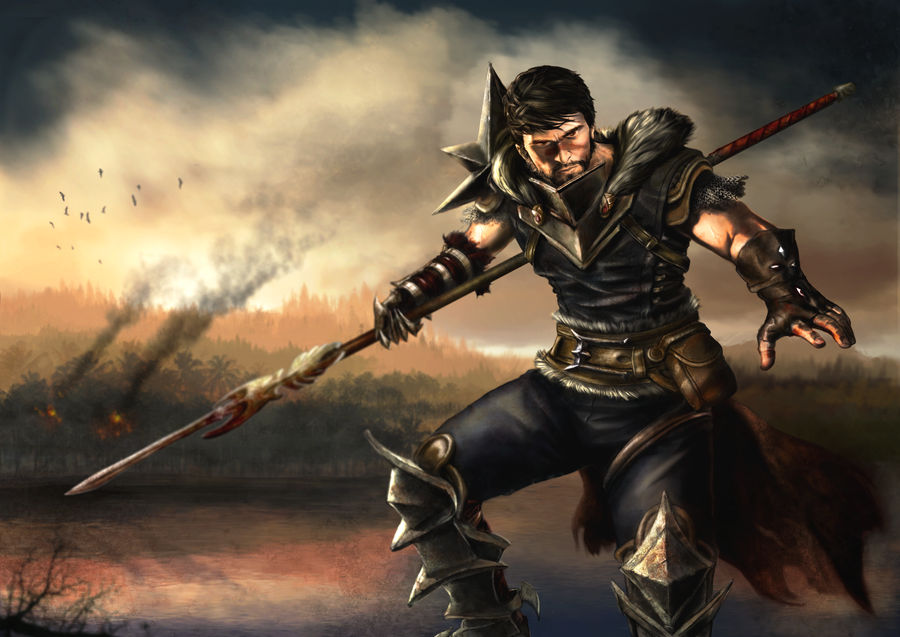
Your Party is Your Power: The true heart and soul of Dragon Age are your companions. They are not mere followers; they are friends, rivals, lovers, and philosophers with their own beliefs, agendas, and banter. They argue with each other, they form friendships (or bitter rivalries) independently of you, and they will challenge your decisions, sometimes even leaving or turning on you if you betray their ideals. The relationship system, particularly the “approval” mechanic, is genius. You don’t just choose dialogue options you think are “right”; you choose options based on who you are with and the relationship you want to build. Do you side with the pragmatic Sten to gain his respect, or the idealistic Alistair? These relationships make the journey personal. Defeating a Archdemon or Corypheus feels like an epic victory not because you saved the world, but because you saved it with them.
The Keep of Choices: Dragon Age’s most ambitious feature is its world-state importation through the Dragon Age Keep. Your major decisions from previous games carry forward, shaping the world, determining who lives and dies, and who rules nations. Seeing your choices from Origins referenced in Inquisition, years later, is a powerful testament to the lasting impact of your actions. It makes Thedas feel like your Thedas, a living world that remembers the hero you chose to be.
2. Mass Effect Series: The Ultimate Space Opera
For pure, unadulterated epic scale and the power of a continuous narrative, nothing touches the Mass Effect trilogy. This is BioWare’s magnum opus, a sci-fi saga that makes you feel like the commander of a starship, the leader of a diverse crew, and the sole hope for galactic civilization. It’s a trilogy that asks the biggest questions—about AI, organic life, evolution, and sacrifice—and wraps it all in a thrilling, character-driven narrative.
Commander Shepard: The Ultimate Power Fantasy: Unlike the predefined Geralt, Commander Shepard is your creation. You choose their background, their appearance, and, most importantly, their personality through the iconic Paragon/Renegade system. This binary morality system worked because it wasn’t just “good vs. evil”; it was “diplomat vs. pragmatist.” Would you charm your way through a problem or punch your way out? Shepard became your Shepard, and the emotional investment in their three-game journey is unparalleled.
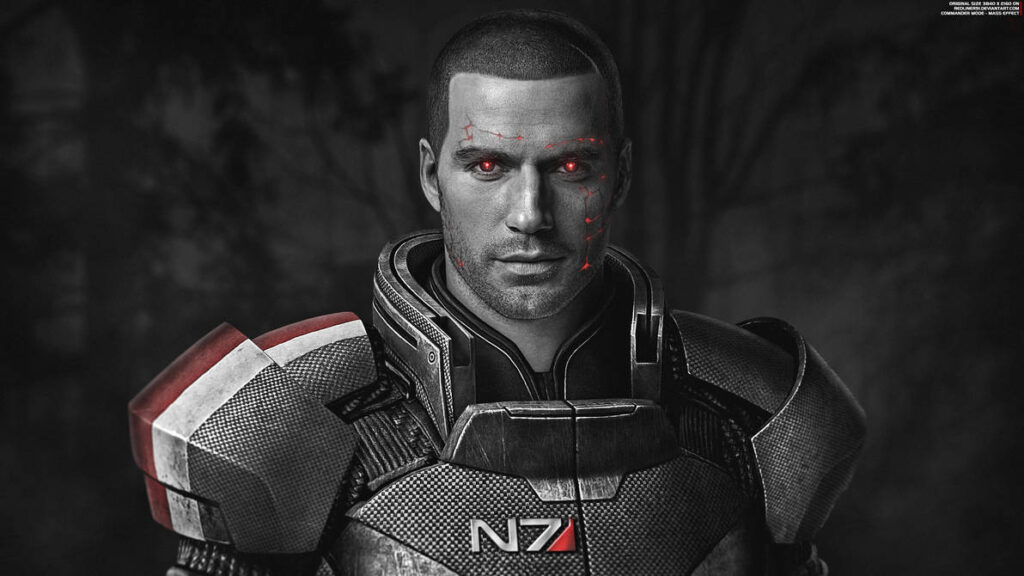
The Best Crew in the Galaxy: The Normandy is more than a ship; it’s a home. And its crew—Garrus, Tali, Liara, Wrex, and so many more—are family. Mass Effect perfected the “loyalty mission” concept, dedicating entire quests to delving into your squadmates’ deepest traumas and fears. By helping them face their past, you ensured they’d have your back in the future. The relationships you build feel earned and real. The romance arcs, in particular, are legendary, spanning entire trilogies and paying off in moments of incredible emotional weight. Saying goodbye to these characters after the final mission in Mass Effect 3 is one of the most poignant moments in gaming, precisely because you’ve lived an entire life with them.
A Universe of Wonder: The Codex is a testament to the incredible world-building. The universe is filled with fascinating races, cultures, and histories: the honor-bound Turians, the mysterious and long-lived Asari, the nomadic Quarians, and the brutal, reptilian Krogans. You don’t just learn about this universe; you absorb it through conversations, planet scans, and codex entries. It feels vast, ancient, and real. The Reapers are also one of gaming’s most terrifying and compelling existential threats—a Lovecraftian nightmare rendered on a galactic scale. The stakes couldn’t be higher, and you feel every ounce of that weight on Shepard’s shoulders.
1. Final Fantasy: The Unchallenged King of Heart and Scale
And here we are. The number one. The series that has defined the JRPG genre for decades and has been a constant, evolving companion throughout my life. Picking a single Final Fantasy game is impossible because the series itself is the masterpiece. From the pixelated epic of FFIV and FFVI to the cinematic revolution of FFVII, the artistic beauty of FFX, and the modern open-world marvel of FFXVI, this series represents the pinnacle of creativity, musical genius, and emotional storytelling in gaming.
The Crystalline Formula: What defines a Final Fantasy? It’s not a single character or world; it’s a collection of themes and feelings. It’s the fight against a god-like antagonist with a tragically human flaw. It’s a ragtag group of rebels, royals, and misfits becoming a found family to save the world. It’s the iconic Jobs system or the strategic depth of the Materia or Junction systems. It’s the summons (Eikons, GF, Aeons) that unleash spectacle on an unimaginable scale. It’s the airships, the chocobos, and the guy named Cid. It’s a formula that is constantly reinvented yet always feels familiar.
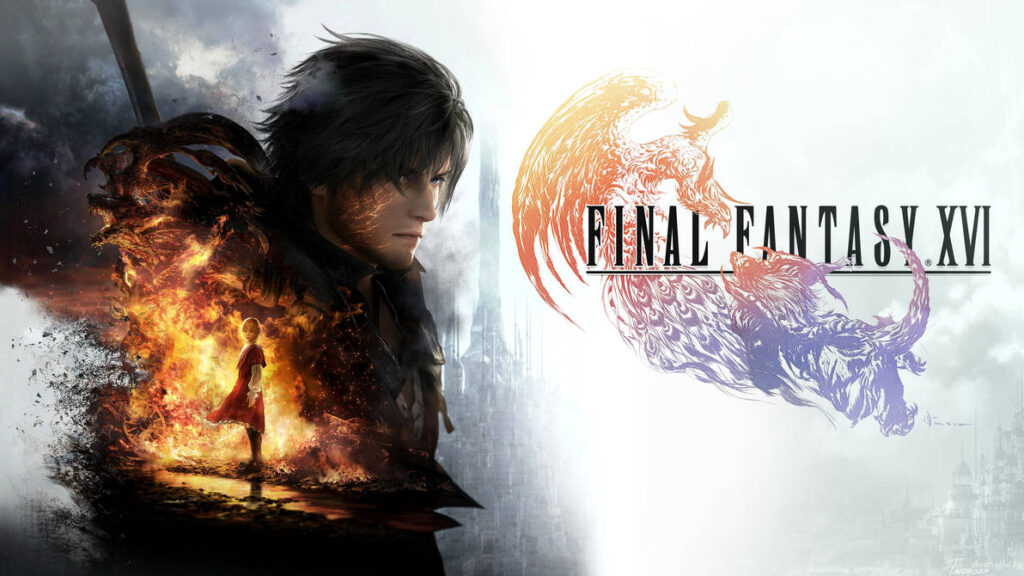
Nobuo Uematsu’s Soul: You cannot talk about Final Fantasy without talking about the music. Nobuo Uematsu (and his brilliant successors like Masayoshi Soken) is the series’ secret weapon. The scores are not just background music; they are the emotional core of the experience. The prelude, the main theme, “Aerith’s Theme,” “To Zanarkand,” “Answers,” “A Long Fall”—these pieces are instantly recognizable and evoke a powerful, immediate emotional response. They elevate every scene, every victory, and every heartbreak into something transcendent. The music is the soul of Final Fantasy.
A Legacy of Innovation: No two mainline Final Fantasy games are truly alike. Square Enix has never been content to rest on its laurels. They push technical boundaries and reinvent gameplay with each new numbered entry. FFVII brought RPGs into the 3D mainstream. FFXI and FFXIV (now one of the greatest MMOs ever made) pioneered online worlds. FFXII introduced its ambitious Gambit system. FFXVI seamlessly integrated character-action combat worthy of Devil May Cry. This relentless innovation means that every new Final Fantasy is an event, a leap into the unknown. You never know exactly what you’re going to get, but you know it will be ambitious, beautiful, and packed with heart.
Why It’s Number One: Final Fantasy takes the top spot because of its unwavering commitment to its core tenets: emotional storytelling, artistic beauty, and musical perfection. It has made me cry more than any other series. It has filled me with more awe. It has the most memorable moments: the opera scene in FFVI, the death of Aerith in FFVII, the ending of FFX, the journey to space in FFVIII, the entirety of FFXIV: Shadowbringers and Endwalker. It is a series that is unafraid to be melodramatic, to be weird, to be ambitious, and to wear its heart on its sleeve. It is, and likely always will be, my final fantasy.
The Common Thread: Worlds That Feel Like Home
These five series, though different in setting and tone, all share that magical ability to create a world you don’t just want to visit, but one you want to be a part of. They are defined by deep lore, meaningful choices, and, above all, characters who feel like real people. They remind us that the power of RPGs isn’t in the stats we maximize, but in the stories we live and the friendships we forge along the way.
They set a bar—a bar of ambition, writing, and pure heart—that continues to inspire and define what this incredible medium can achieve. Here’s to the next journey, wherever it may be.

